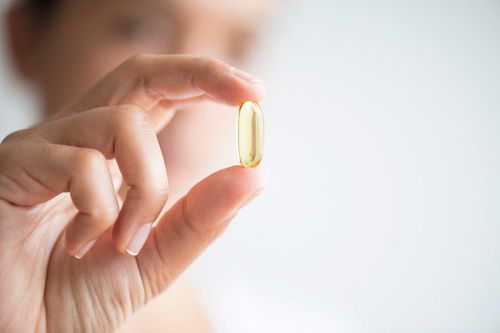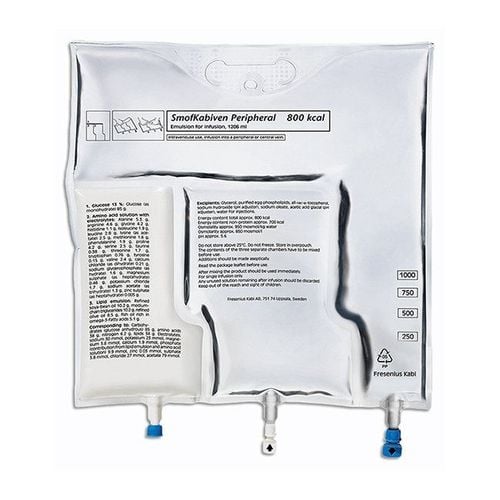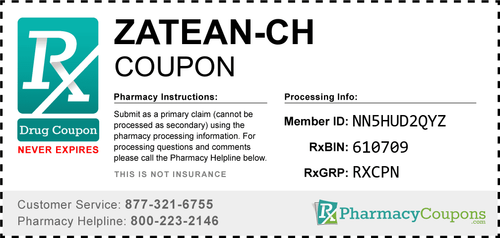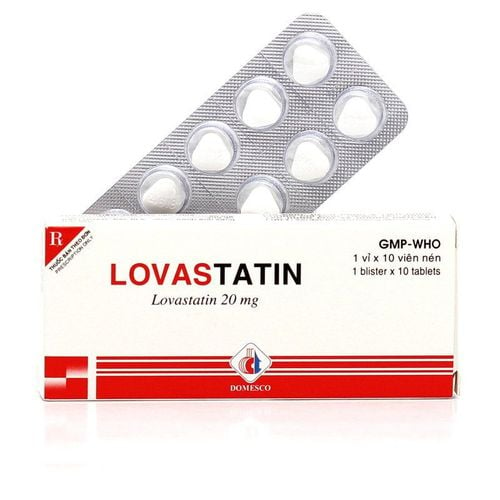This is an automatically translated article.
Omega-3 fatty acids are a vital ingredient to a healthy diet. These essential fats are especially important for children, as they play a key role in growth and are linked to many health problems. However, many parents are unsure whether omega-3 supplements are really necessary and safe for children.
1. What is Omega-3?
Omega-3s are essential fatty acids for many aspects of health, including fetal development, brain function, heart health, and immunity. Omega-3s are considered essential fatty acids because the body cannot produce this type of fat on its own and must be obtained from dietary sources.
The three main types of Omega-3 include alpha-linolenic acid (ALA), eicosapentaenoic acid (EPA), and docosahexaenoic acid (DHA).
ALA is present in many plants, including vegetable oils, nuts, and some vegetables. However, ALA cannot work directly after consumption, the body needs to convert ALA into absorbable forms such as DHA and EPA.
EPA and DHA occur most often in fatty fish, such as salmon, mackerel, and tuna, and EPA and DHA are widely available in the market as supplements. Some of the most common types of supplements are fish oil, krill oil, and algae oil.

Omegan-3 đặc biệt có lợi cho sự phát triển trí não của thai nhi
2. Benefits of Omega-3 for Children
2.1 Improve ADHD Symptoms
Attention deficit hyperactivity disorder (ADHD) is a common condition associated with symptoms such as hyperactivity, impulsivity, and difficulty concentrating in children. Some studies indicate that omega-3 supplements may help reduce symptoms of ADHD in children.
A review of 16 studies found that omega-3 fatty acids have the potential to improve memory, attention, learning, and reduce impulsivity and hyperactivity, symptoms commonly affected by ADHD.
A 16-week study in 79 boys found that taking 1,300 mg of omega-3s by mouth daily improved attention in both those with and without ADHD. What's more, a conclusion based on 52 studies has found that dietary modifications and fish oil supplements are two of the most promising techniques for reducing ADHD symptoms in children.
2.2 Reducing asthma
Asthma is a chronic condition that negatively affects both children and adults, causing symptoms such as chest pain, shortness of breath, coughing, and wheezing. Some studies have found that supplementing with omega-3 fatty acids helps reduce these symptoms.
A 10-month study in 29 children found that taking a fish oil capsule containing 120 mg of a combination of DHA and EPA daily reduced symptoms of asthma.
Another study in 135 children demonstrated a link between higher Omega-3 intake and reduced asthma symptoms caused by indoor air pollution.

Omegan-3 giúp cải thiện các triệu chứng hen suyễn
2.3 Improve sleep quality
Sleep disturbance is a condition that adversely affects nearly 4% of children under 18 years of age.
A study in 395 children found that lower blood levels of omega-3 fatty acids mean they have a higher risk of sleep problems. The study also showed that supplementing with 600 mg of DHA for 16 weeks reduced sleep disruptions, and children were able to sleep an additional 1 hour per night.
Another study shows that consuming more omega-3 fatty acids during pregnancy can improve sleep in babies. However, Health still needs more quality studies to confirm this conclusion.

Một tác dụng ấn tượng của omega-3 là giúp cải thiện giấc ngủ cho bé
2.4 Enhance brain function
New studies show that omega-3 fatty acids can improve brain function in children - especially during learning and memory.
In a 6-month study, including 183 children who had a diet high in omega-3 fatty acids, they showed rapid speech learning and good memory.
Similarly, a small, 8-week study in 33 boys found that taking 400 to 1200 mg of DHA per day increased the activity of the frontal lobes, the area of the brain responsible for attention and impulse control. force and planning.
Furthermore, some studies show that omega-3 fats help prevent depression and mood disorders in children
3. Omega-3 . Side Effects
The side effects of omega-3 supplements, like fish oil, are barely noticeable. The most common side effects include:
Bad breath Bad aftertaste Headache Heartburn Stomach pain Nausea Diarrhea Parents need to pay attention to instruct their children to use Omega-3 at the recommended dosage to reduce the risk. chance of side effects. You can also start them at a lower dose, increasing them gradually to assess your child's ability to absorb them.
People with allergies to fish or crustaceans should avoid using fish oil and other fish-based supplements, such as cod liver oil and krill oil. Instead, choose other foods that also have an Omega-3 effect, such as flaxseeds or algae oil.

Tiêu chảy là tác dụng phụ thường gặp khi bổ sung omega-3 cho trẻ
4. Dosage of Omega-3 for children
The need for Omega-3 intake in children depends on age and sex. Therefore, it is important to check the instructions for use on the packaging.
However, ALA is the only omega-3 fatty acid with specific dosage instructions. The daily recommendations for ALA in children are:
Children 0 months to 12 months: 0.5 grams 1 year old to 3 years old: 0.7 grams Children 4 years to 8 years old: 0.9 grams Children 9 to 13 years old, female gender: 1.0 grams Children 9 to 13 years old, male gender: 1.2 grams Children 14 to 18 years old, female gender: 1.1 grams Children 14 to 18 years old, male gender: 1.6 grams Parents should consider giving their child an Omega-3 supplement if the diet does not regularly include fish or other foods high in omega-3 fats. Most research indicates that a supplement of 120 to 1,300 mg of a combination of DHA and EPA per day is beneficial for children.
However, to prevent any side effects, parents should consult a nutritionist before giving it to their children.
To register for examination and treatment with pediatricians at Vinmec International General Hospital, please click the "Contact Us" button on the website or register online HERE.
Reference article: Healthline.com













